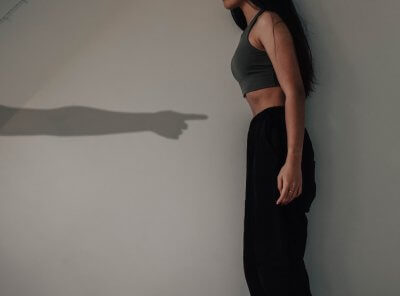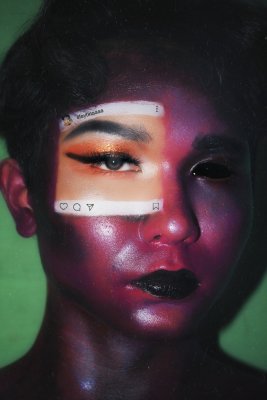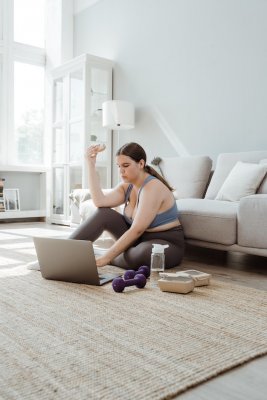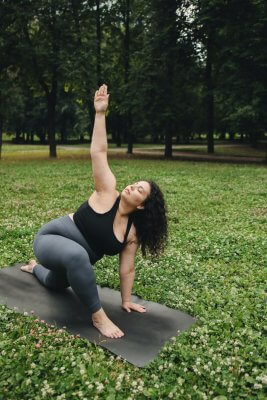Social Media and Body Image – Don’t Be So Sure You Aren’t Affected

Photo by Hanna Xu on Unsplash
by Claudia Cole
Sometimes feel bad about your body? Or struggle with negative thoughts about your appearance? But know that Instagram and TikTok aren’t ‘real’ and tell yourself you know better than to let social media and body image be a thing for you?
It could be affecting your mental health more than you think.
What is body image?
It pays to look at what your definition of ‘body image’ actually is. As it’s not just about whether we think we ‘look okay’.
While it includes how you visually perceive your body, it also includes:
- the way you feel about your body, particularly the amount of satisfaction or dissatisfaction you take in relation to your appearance
- if you do or don’t feel comfortable in your own skin, such as with how much space you take up
- how often you do or don’t compare yourself physically to others
- your thoughts and beliefs about your body
- your sense of how other people see you.
So even if you have convinced yourself you believe your body is fine, if you then constantly worry what others think of how you look, or generally feel uncomfortable in your own skin? Body image issues are at work.
Social media and body image
 It’s not easy to study how much social media is to blame for our body image issues. Researchers might be able to show, for example, that Instagram affects the body image of their subjects. But what if those people were already more concerned with average with their body image, and more likely to be influenced?
It’s not easy to study how much social media is to blame for our body image issues. Researchers might be able to show, for example, that Instagram affects the body image of their subjects. But what if those people were already more concerned with average with their body image, and more likely to be influenced?
Nonetheless, a research overview of 20 studies around the impact of social media on body image and disordered eating concluded there was undoubtedly a problematic influence. And particularly when it came to “viewing and uploading photos and seeking negative feedback via status updates”.
It’s especially a problem with young people, a time when our bodies are growing and changing in a way that can take getting used to. Particularly when it’s also a time we are trying to establish our identity. And a time when there is more pressure to fit in.
According to The Mental Health Foundation, over 40% of teenagers have said that images on social media have caused them to worry about their bodies.
The role of social media and diet disinformation
It’s not just that we compare ourselves to filtered images from people we don’t even know. Or who have teams of makeup artists, photographers, and post-production editors making them look their best.
Another worrisome way social media affects our body image is through harmful and dishonest dieting information. This includes trends such as “clean eating” and “fitspiration”. Not only does this idealise often unattainable ‘thin’ and ‘muscular’ ideals, but it also promotes unhealthy forms of eating and excessive exercise.
Be honest. Have you ever considered or even started a diet or obsessive exercise regime because of something you saw or read on Instagram?
Such dieting information can be completely dishonest, with photos claiming to show the result of a certain regime that the person in the photo hasn’t even tried.

photo by Mart Production on Pexels
Or even dangerous, such as the promotion of unhealthy diet aids. Things like detox teas and appetite suppressing candies can have side effects like severe diarrhoea and the reduced effectiveness of birth control.
Dangerous enough that Professor Steve Powis, the national medical director of the NHS in England, called for social media companies to ban what he deemed “irresponsible and unsafe” promotions of such products by celebrities.
But is social media really the only issue?
Of course body image issues and eating disorders existed long before social media. Many things can impact how we feel about our bodies. Other factors and experiences can include:
- going through puberty
- our relationship with our family
- peer-to-peer dynamics
- comments made by family and friends about your body
- having been teased or bullied about your appearance
- cultural differences around body ideals
- gender and sexuality
- sexual abuse or trauma as a child.
No, I don’t like my body, but is it really a big deal for my mental health?
According to a survey, over one-third of adults feel depressed with their body image. Among teenagers, 37% feel upset and ashamed in relation to how they think they look.
The survey shows how body image concerns are a fairly common experience and not considered a mental health issue in and of itself.
But they can certainly still be a strong risk factor for mental health problems. As a white paper on body image distortion points out:
“Body image can affect physical and psychological health and can influence self-esteem, mood, competence, social functioning, and occupational functioning”.
The paper then goes on to show the links between body image issues and:
- anorexia nervosa
- body dysmorphic disorder (BDD)
- bulimia and binge eating disorder
- disordered eating
- generalised anxiety disorder (GAD)
- major depressive disorder
- obsessive compulsive disorder (OCD)
- self-harm
- social anxiety disorder
- trichotillomania (hair-pulling disorder).
What can I do to protect my body image?
If you’re struggling, there are ways that you can improve and protect your body image when online.
1. Show your body some kindness.

photo by Polina Tankilevitch on Pexels
A study on yoga and body image concluded those who have a healthier body image also have higher levels of self-compassion. Being kind to ourselves can help us curb our negative thoughts, allowing us to reset our self-image with no judgement or shame.
What would your thoughts sound like if you talked to yourself the way you talk to your friends?
2. Clean your social feed.
Sometimes, we’re so busy scrolling on our phones that we aren’t aware of what we’re consuming and how it makes us feel.
That’s why it is important to take the time to clean your feed from anything you may find upsetting about your body.
Instead, you could try following accounts and hashtags that promote body positivity and makes you feel good about yourself.
3. Take a break.
While being mindful on social media can help, apps such as Instagram can still increase the intensity of comparing your body to others.
Taking a social media break or limiting your use of social media is another useful way to help ease the pressure when you’re feeling overwhelmed.
This will give you some time and space to centre yourself, remembering that not everything we see on social media is real.
4. Focus on body neutrality.
Building a healthier body image doesn’t mean you have to feel positive about it all the time. Changing how we see ourselves can take some time and can often feel more challenging on some days than others. Body neutrality is a great step toward self-acceptance. It allows you to focus and recognise all the great things your body can do rather than how it looks.
Engaging in mindful movement is a great way to practise this. The above mentioned study on yoga showed the positive effects on body image as it increases your body’s awareness, encouraging you to be grateful for your physical capabilities.
5. Seek Support.
If you’re struggling with your body image and it’s having a significant impact on how you feel, it’s best to seek some extra support. Sometimes, the cause behind our poor body image isn’t always straightforward and can result from deeper problems that stretch right back to childhood and need addressing.
Cognitive-behavioural therapy (CBT) is a common form of treatment for body image issues that helps you realign your thinking. If your CBT therapist thinks you might have a diagnosable disorder like anorexia or bulimia, they can recommend you on to a psychiatrist.
Sick of your thoughts about your body controlling your life? We connect you with a team of some of London’s most highly rated, friendly, and professional therapists. Or use our booking site to find UK-wide online therapists now.
Still have a question about body image and social media? Or want to share your experience with other writers? Post below.
 Claudia Cole is a London-based writer and journalist. She is passionate about sustainable living, mental health, and wellbeing.
Claudia Cole is a London-based writer and journalist. She is passionate about sustainable living, mental health, and wellbeing.




